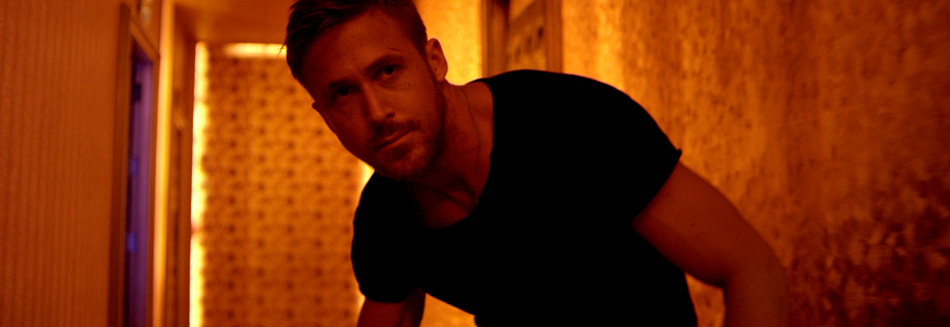

Fans of Ryan Gosling and the gorgeous genre-defying 'Drive' (2011) should be forgiven for their rejection of his second collaboration with writer-director Nicholas Winding Refn, 'Only God Forgives'. One of the most highly-anticipated films of the year, it was also the most divisive, with many confused by the abstract nightmare quality of the film after the simple narrative clarity of 'Drive'. For just as many, however, they were greeted with an intensely cinematic experience, an exhilarating work of art from a great artist and one of the most insane films in years.
Trying to summarise a narrative from 'Only God Forgives' is pretty much futile, with Refn less concerned about telling a story and more interested in exploring the psychology of the cyphers that inhabit the film, and what narrative is present feels secondary to something more indefinable. You have Julien (Ryan Gosling), the disaffected young man coping with the death of his brother, his mother Crystal (Kristen Scott Thomas), the harridan matriarch who manipulates Julian, and Chang (Vithaya Pansringharm), a Thai detective who stands as an avenging angel, an Old Testament God delivering justice and punishment. These three figures find themselves in each others' orbit, set against the seedy neon landscape of Bangkok.
WATCH: 'ONLY GOD FORGIVES'
On a purely technical level, 'Only God Forgives' is a blistering masterpiece, and is one of the most visually striking films of the decade. Refn and his cinematographer Larry Smith use the camera to compose striking and haunting images, with easily the best use of colour in film since Tom Ford's 'A Single Man' (2009). Budget constraints forced Refn to rely on pre-existing locations in Bangkok, but the landscape these figures move across is so bizarre and eclectic, you couldn't design them. There's much to suggest that 'Only God Forgives' shouldn't be taken as a reality, that what we're watching isn't actually happening. It could all be a dream or a nightmare, characters appearing out of nowhere as if summoned. Whose dream or nightmare it is, it's hard to say. All three of the central performances are tremendous and help to lend the film its dream-like texture, especially the almost entirely mute Julian, another example of Gosling's incredible magnetism as an actor. Kristen Scott Thomas gives Crystal an intoxicating and revolting theatricality, and she steals every scene she's in. The standout, however, is Pansringharm, who dominates with a terrifying and steely performance. Staring into his eyes is like looking into an abyss.
'Only God Forgives' is a blistering masterpiece.
While 'Drive' straddled the tricky balance between genre and arthouse, 'Only God Forgives' returns Nicholas Winding Refn firmly back into the latter. There's something Kubrickian about it, that detachment observational quality, that rejection of reality in favour of something more etherial and harder to define. For lovers of cinema, this is an indulgently exhilarating experience, the kind you submit to and revel in, a work of blistering style, vision and violence.
PICTURE & SOUND
'Only God Forgives' is one of those films that really benefits from the advantages of high definition. Icon have graced the film with a gorgeous 1080p 1.85:1 transfer that demonstrates the great skill and artistry of its photography. Detail is crisp and the colours pop magically. The neon glow of the film is a real highlight. Much of the film is without dialogue, so the sound design and score are as important to the storytelling as the cinematography. The DTS-HD MA 1.85:1 track recreates the overwhelming use of sound beautifully, especially Cliff Martinez's haunting score. Overall, a terrific presentation.
SPECIAL FEATURES
Unlike the underwhelming release of 'Drive', we have a great selection for 'Only God Forgives'. The highlight is the commentary, a conversation between Refn and moderator Damon Wise. During the commentary, Refn highlights many of the recurring symbols of the film and discusses the thematic ideas it explores. It's very clear, after listening to the commentary, that this isn't a film that should be taken on face value, that it's as interested in exploring the language of cinema as it is exploring character psychology. There's also an interview with Refn where he discusses his relationship with genre filmmaking, and a featurette of behind-the-scenes footage. A small selection, but everything is of high quality.